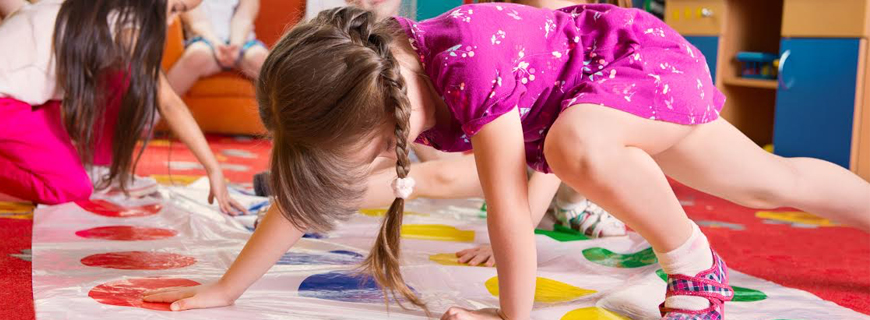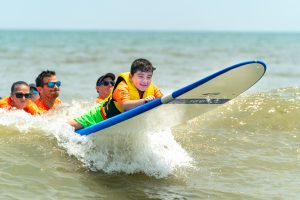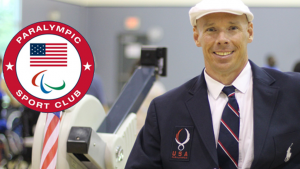Prescription for Play: How Recreational Therapy Enhances Recovery

Back to physical health resource hub
Who says therapy isn’t all fun and games?
Recreational Therapists might just have one of the most fun jobs on the planet. They can be seen leading a group of patients around the hospital on handcycles, hosting bakeoffs, or playing ping pong all during work hours. They’ll be the first to tell you that they are not goofing off, it is some of the most productive time spent with patients.
“The difference between recreational therapy and other types of therapy is we hide what we do behind fun and games,” says long time Recreational Therapist Alison McCarraher. All therapy is about helping patients achieve their functional goals, but RT does it through things like play and leisure activities. In fact, this type of therapy can help people work harder for longer, just by disguising it as fun!
Here are just a few activities that our therapists will use to put the fun back in function:
Video Games
Using gaming options like the Wii and Xbox can help patients engage with therapy in a whole new way, improving balance, coordination, mental sequencing, cognition, memory, and even endurance.
Hand Cycling and Recumbent Biking
This activity helps not only with fitness, but helps patients work on visual scanning, multi-tasking, attention and memory.
Field trips
Taking group outings is a great way to help people learn to re-integrate following an illness or injury. It allows patients to practice things like mobility, socialization, monetary transactions, and safety.
Remote control toys
Using remote control cars or boats in therapy is a great way to improve fine motor skills, coordination, endurance, and attention.
Cooking
Cooking with individuals or groups can be a fun way to practice life skills, team work, socialization, safety and adaptation.


